Bruins are innovators, so it’s no surprise UCLA alumni are involved in developments in the rapidly growing marijuana industry. Influencing and improving the business model, consumer experiences and the seed-to-sale process are just a few of the ways Bruins are making an impact in this field. Featured are three Bruins who are changing perceptions about the cannabis business.
Andrew Modlin ’08
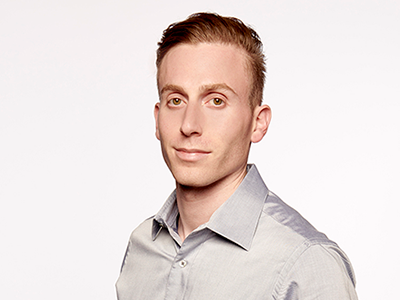 |
Andrew Modlin had no formal business training when he broke into the cannabis industry, and he certainly did not think his venture would turn into a company valued at one billion dollars.
Modlin is the president and co-founder of MedMen, the highest valued cannabis company in the United States. After graduating from UCLA with an art degree, he went from painting to marketing design. He decided to start his own marketing and design company with his boss at the time, and that was when they got their first request to redesign a marijuana dispensary website. The dispensary owner told Modlin that her business was driving approximately $200,000 a month in profit. Modlin almost immediately decided to get involved.
“I’ve never had another job other than doing this. I’ve never had other titles. I had no idea how regular business worked,” Modlin said.
Now, it has been about seven years since he and his business partner Andrew Bierman, the CEO of MedMen, opened their first dispensary in Marina del Rey.
“We figured it out together,” Modlin said.
They were able to sell that dispensary, use the profit to open more and then start a marijuana license management company. MedMen also now includes a private equity fund.
“I think the fact that (the marijuana industry) was a turbulent climate gave me an advantage because everyone was learning about it at the same time,” Modlin said. “Not having any preconceptions of what it could be gave us an advantage.”
In addition to obvious legal challenges, the federal regulations on marijuana usage affect funding opportunities for cannabis businesses because it comes at a high premium. He and his business partner had a clear plan the last four years of how they would develop MedMen. However, raising capital posed a unique problem because the reputation of the weed business differed from other fields, like tech, in which investors needed little encouragement.
“The biggest challenge has always been raising money to compete with what the vision is,” Modlin said.
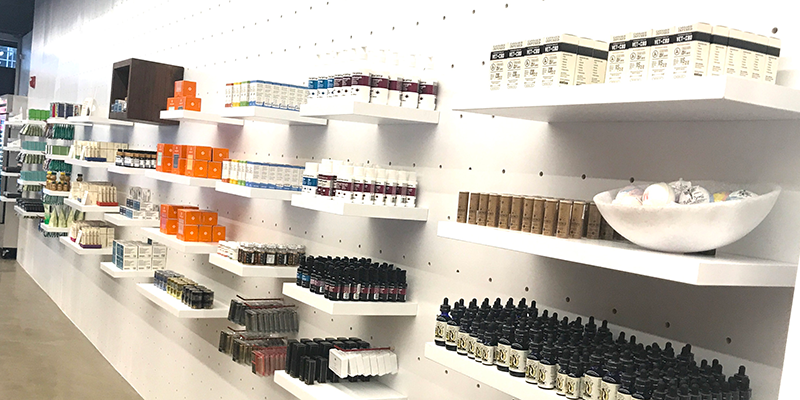
He is hoping marijuana use becomes federally legal within the next five to 10 years. “I think more and more regular people are getting into the space,” Modlin said. “Five years ago, I couldn’t have hired 99 percent of the people that work at MedMen. People were so averse to it. Now I can get the executives that the business needs to run.”
MedMen recently announced it will be a publicly traded company in Canada, which will legalize recreational and medical marijuana this year.
Christian Kramme
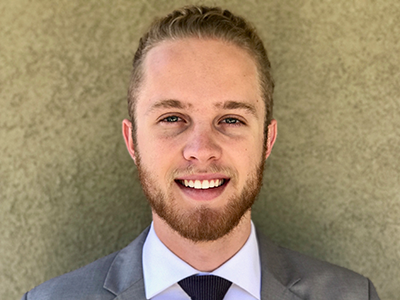 |
Before Christian Kramme graduates this June, he will already have professional experience as a business owner and patent holder in the cannabis industry.
However, his entrance to the field began four years ago when he was a patient using medical marijuana to alleviate the severe gastrointestinal pain he had been experiencing since 2012. After it cured him of his chronic pain, he realized the positive influence medical marijuana has on patients.
During his freshman year at UCLA, Kramme patented a marijuana vending machine called The Green Box with his brother, Connor Kramme, who was attending UC Berkeley at the time. Then, with their father Mark Kramme, they founded Green Box Medical Inc., a medical marijuana delivery system that served chronic pain and cancer patients in the Westwood area, and other California locations.
“(You’re) trying to do the best you can in compliance when there are no formal rules in compliance,” Kramme said.
Kramme then transitioned to opening a 64-acre farm in Northern California during his junior year to improve the seed-to-sale model. He even took off fall quarter 2016 in order to be at the cannabis farm.
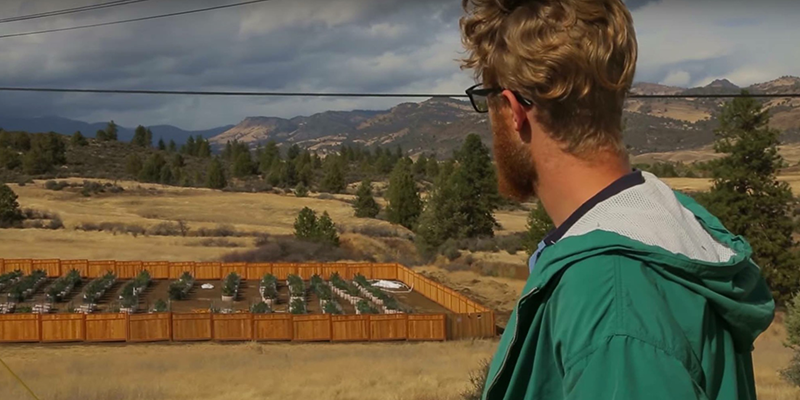
“I was lucky enough that I was the chief scientific officer of the company. I could take what I was learning in school and apply it to the field, and take what I was learning in the field and apply it to school,” Kramme said.
Kramme left the industry in June 2017 when the county his farm was in decided to put a two year moratorium on commercial cannabis activity. They sold Green Box Medical Inc. to a new operator, who bought the delivery service, patient network and the farm.
“I started by entering through the technology side, then realized the technology is only as good as the medicine that's going to go in it,” Kramme said.
Kramme is continuing his involvement in the cannabis world through research. He currently works with the UCLA Cannabis Research Initiative, particularly with synthetic cannabinoids that provide extreme pain relief without side effects of the brain.
He said he still holds the patent for the cannabis vending machine and hopes California will change the state laws regarding autonomous delivery of cannabis, which is currently prohibited.
In addition to his professional experience, Kramme is a True Bruin Distinguished Senior, and the 2014 UCLA Alumni Scholarship National Finals winner as the Kenneth H. Yoon Scholar. He will be pursuing a doctorate in neuropharmacology after graduation.
Marlene Urrea ’03
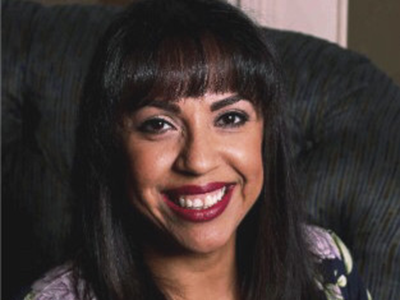 |
Six months ago, Marlene Urrea found herself sitting on her couch, unemployed. Then a news report came on television declaring cannabis was legalized in California.
Two weeks later she was hired as the Southern California Dispensary Advisor for Herban Industries, a medical marijuana company.
Prior to this, Urrea – an American Literature and Culture major – worked in a variety of positions, including bookkeeping, operations management and sales within the agriculture and produce industry.
“I was burnt out and didn’t see any upward mobility anymore, so the idea to go into cannabis was a fluke,” Urrea said.
Her transition to the cannabis industry was similar to her experience in the produce industry in 2005, when food regulations and compliance were ramped up following an E. Coli outbreak. Marijuana companies largely follow the seed-to-sale model.
“Every plant that is put in the ground or in the greenhouse is tracked from the moment it’s planted, to the moment it’s consumed,” Urrea said.
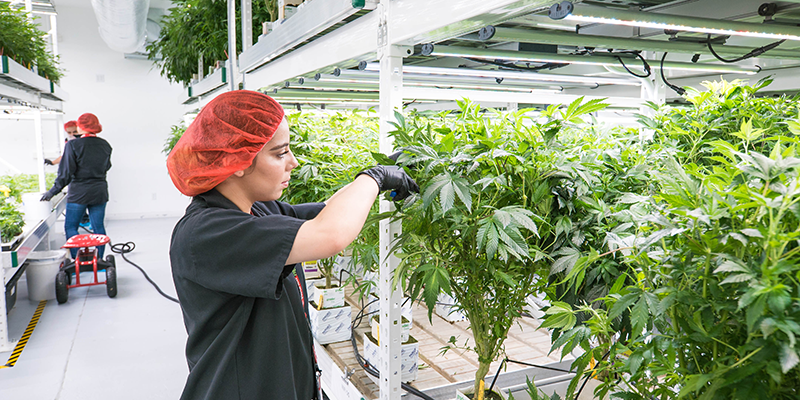
Like many establishments in the food and restaurant industry, Urrea added most marijuana dispensaries are small businesses.
“There’s a connoisseur aspect to cannabis,” Urrea said. “(With) one shop and one owner, that relationship is similar to the relationship you have to the partnership with a restaurant.”
Urrea transferred many of her skills from her experience in the food industry to the cannabis world: she helped design the way Herban Industries onboards customers, checks orders and designs sales.
“I worked for one of the largest (food) distribution companies in the world, so I had a good vision of how distribution and getting the product to market using different suppliers looks like,” Urrea said.
A quickly growing sector, Urrea appreciates that the cannabis industry has the opportunity to be increasingly diverse. “It is so young and open minded, there is an opportunity to come in from very different backgrounds and very different skill levels,” Urrea said. “It’s a far less judgmental industry, which is amazing because it allows for diversity in a really organic way.”
Some of her biggest surprises have been exposure to the scientific and testimonial evidence supporting medical marijuana, and the number of people who hide that they use marijuana.
She said when she switched careers last year and began posting information about her job on social media and LinkedIn, her inbox was inundated with private messages from people who were using medical marijuana. Some of the people she had known would openly drink alcohol for years but chose to keep their marijuana use a secret.
“Once people come out of the dark, you can see who the real users are and educate them out in the open and not just in the dispensary or on the Internet,” Marlene said. “Once they are educated they no longer have the fear or the stigma attached to marijuana use.”